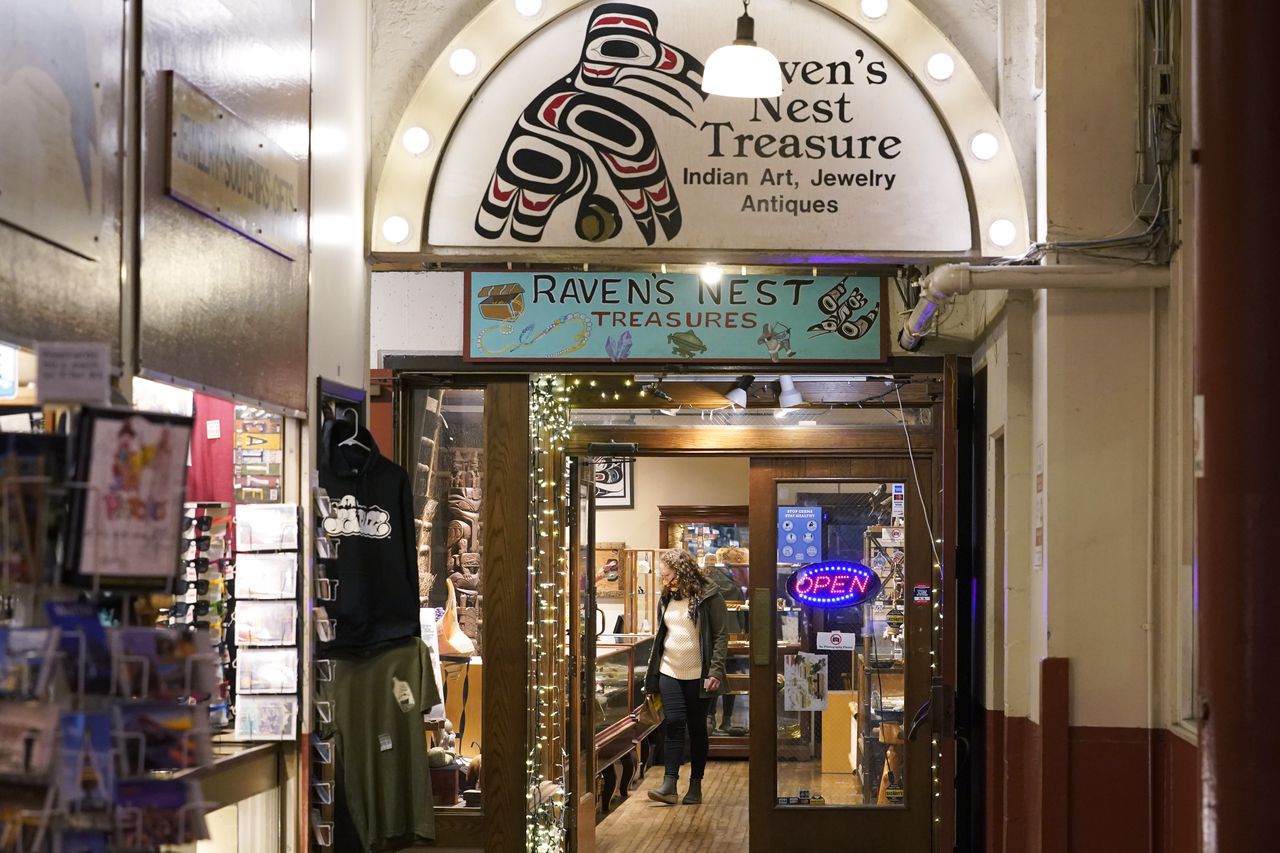As Congress mulls protections for Native artwork, Cherokee Nation criticizes inclusion of dubious state tribes
The leader of one of America’s largest Native American tribes wants Congress to remove some protections for state-recognized tribes whose claims to Native ancestry are often dubious if not outright fraudulent.
A Senate committee is currently accepting public comments for the ARTIST Act, which builds from the Indian Arts and Crafts Act’s (IACA) prior efforts to prohibit the sale, marketing or promotion of fraudulent Indian Art.
The ARTIST Act would strengthen enforcement in current federal law, expand protections for Indian-created products and include creative works by Native Hawaiians under these safety regulations for the very first time.
Protections currently exist for American Indian and Alaska Native artisans.
On Monday, the Cherokee Nation’s Principal Chief Chuck Hoskin Jr. called on Congress to strip “protection from members of so-called state tribes,” from the proposed ARTIST Act.
“If groups posing as tribes under state law want the unique protections and opportunities available to Indian tribes, […] these groups should go through the rigorous process of federal recognition,” said Chief Hoskin in a video posted on Cherokee Nation’s YouTube page.
A 2019 L.A. Times investigation revealed that two tribes in Alabama, the self-described and state-recognized Creek Indian Tribe and the Echota Cherokee Tribe, received more than $200 million in federal minority-business contracts from the Small Business Administration. The investigation found that the leaders of the tribe were unable to document their Native heritage.
Meanwhile, tribes like the Chinook Indian Nation and Snohomish Tribe are still waiting for federal recognition of their sovereignty. They’ve spent decades petitioning the U.S. government for federal recognition.
Enacted in 1990, the goal of the Indian Arts and Crafts Act (IACA) was to stop historical and ongoing misrepresentations of Native American art by non-Native people. If Indian-made products were not created by a member of a state or federally recognized tribe, or an artisan who’s been certified by a tribe, an individual guilty of this crime could face a five-year prison term or a penalty of up to $250,000, or both.
If a business violates the act, it can face penalties and fines of up to $1 million and be criminally prosecuted.
But according to Indianz.com, Native artists and advocates have long criticized the lack of enforcement of this law, allowing fraud and fake Native artists to continue selling “Indian” art in some of the largest art markets in the country, undermining a significant stream of income for Native American artists and communities.
A search of the U.S. Department of Justice website revealed that 15 people have faced prosecution for violating the IACA since 2018.
The discussion draft bill of the ARTIST Act, released by Sen. Brian Schatz (D-Hawaii) back in March, who’s the chairman of the Senate Committee on Indian Affairs, would update the Indian Arts and Crafts Act and combat this problem by “expanding the ways in which federal officers can investigate suspected violations.”
Under the law, any federal law enforcement would be authorized to make arrests, carry out searches and conduct seizures for suspected violations of the Indian Arts and Crafts Act. The bill also allows officers to inspect shipments entering and leaving the U.S. to make sure it’s compliant with the law.
People convicted of violating the law or have been penalized from a civil action under the law will bear the financial costs to enforce these measures through fines and penalties and could have their property forfeited.
This would help create a new Indian Arts and Crafts Forfeiture Fund to aid the work of the federal government.
The Senate Committee on Indian Affairs is accepting public comment for the proposed ARTIST Act until April 14.
In a news release issued by the Committee on behalf of chairman Schatz, it stated that the discussion draft “reflects direct stakeholder input as well as years of Committee oversight and broad commitment to the protection of Native cultural patrimony and revitalization of Indigenous languages.”
